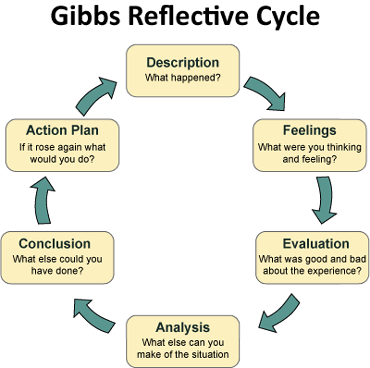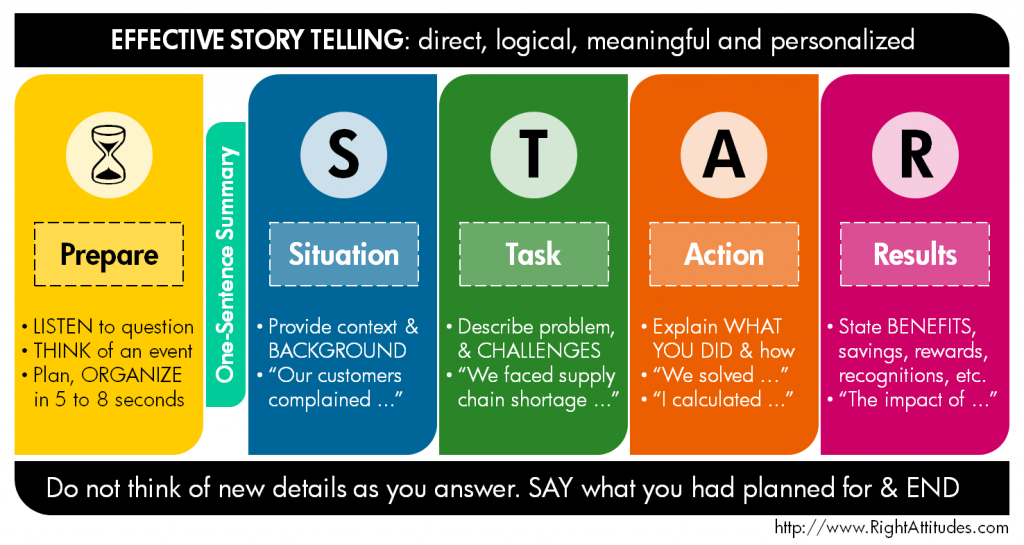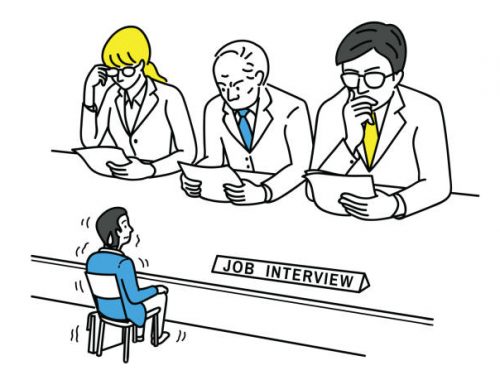Think before you speak
To think before you speak seems like an obvious concept when approaching an interview. This blog will reflect upon my simulated interview experience for the work-based placement module. It will think about the importance of this phrase and the lessons I learned regarding approaching a teaching interview. I will do this by working systematically through the steps that Gibbs outlines in his process of reflection. Dewey explains that “We do not learn from experience. We learn from reflecting on experience.”(Dewey, 1993) With this in mind, I believe that Gibbs’ six step process will allow me to unpack the experience completely and reflect upon it in detail so that I can approach future teaching interviews fully prepared.

What happened?
Ahead of the interview, I forwarded the job description for a Primary School teacher with experience in SEN in Ballyclare-Doagh Primary School to my group. Ahead of the interview, I read up on common teaching questions and prepared answers.
On interview day, everyone arrived on time, as we conducted the interviews in alphabetical order, I was first to be interviewed. The interview began with the dreaded question “Tell me about yourself?” I managed to drag myself through this question and provide a relatively vague answer. I recovered and moved on to the following questions. These included questions surrounding my experience in Special Education and the merits of reflective practice. I answered the majority of the following questions without a hitch. Ironically, the question regarding reflective practice caused me to stumble as I rushed to answer before pondering its implications, causing me backtrack.
How I really felt?
I felt relaxed despite being the first to be interviewed. I had previously completed three PGCE interviews and received offers, so I had an idea of what to expect. The first question, “Can you tell us a bit about yourself?” caught me off guard and made me anxious. When I got to the questions detailing my teaching experience, my enthusiasm increased as I talked about the work I love. This helped me to gain confidence. When I was given a question regarding reflective practice, I got over-excited as I had answered a similar question in a previous interview. I began to answer before considering the exact wording of the question. I felt panicked when I realised my mistake.
What went well?
My experience helped me to feel relaxed and aided me in finding my confidence again following being taken off guard by a question I did not expect. I was able to use my experience effectively when answering teaching based questions, speaking in detail about it and applying it directly to the question.
What went wrong?
My hesitance regarding the first question shows me that I was not prepared completely for the interview. I was over-confident about the reflection question and failed to think and prepare an answer before speaking.
Let’s analyse it

As I read this feedback I realise that the confidence I felt ahead of the interview was mirrored through my non-verbal cues, making me appear enthusiastic about the teaching job in question. This is a great quality to display in an interview as statistics show that “4 out of 10 employers would reject a candidate if they showed no enthusiasm.” (Fennell, 2022).

I initially saw my experience as something that was of benefit to me alone. It acted as a life boat for me to cling to when I struggled to think of something to say. However, I can now see that my experience is also vital to future employers as it can add value to the work place, bringing a new dynamic to the classroom. The mention of the STAR technique is interesting. Although I used it well to reflect upon my experience, I think it would have been beneficial for me to have considered the ‘prepare’ aspect of the STAR technique. If I had taken as little as 5 seconds to consider the question, I would not have made an error that shook my confidence.

As I consider the problem I had regarding the “Can Tell me about yourself?” question, I realise that I could have avoided this if I had just researched general interview questions. Research on interview tips explains that the “Can you tell us about yourself question?” is a common first question in an interview and it is “used to test composure, communication skills and ability to develop rapport with the interviewer.” (Block, Betrus, 2014). Spending extra time at home coming up with a brief answer to these general questions would have saved me losing my composure and making an error that could have been detrimental to the rest of my answers.
To tie it all up
I realise that feeling relaxed is not just of benefit to me, it helps me to communicate non-verbally with my future employers and convey my engagement with the interview. I can now see that my experience is of value and I should not underestimate how much it could bring to a teaching job. Preparing for general interview questions is crucial for presenting as a well rounded applicant. Most importantly, this experience has helped me to realise that all the stress that I felt within this process could have been eased significantly by taking a moment to gather my thoughts. Even when faced with a question I did not know the answer to, taking a brief pause would have helped me find a way ahead.
What next?
I will approach future teaching interviews with a well-rounded mindset of the interview process. I will prepare for all aspects of the interview, looking at more generalised questions as well as career specific ones. I will enter the interview room confident in the value that my experience can offer. Finally, and most importantly I will take a minute to integrate the ‘prepare’ aspect of the STAR technique into every answer and plan before answering. In other words, I will think before I speak.

Pages: 1 2

So You Want To Be A Teacher?
Confidence is key.
You May Also Like

Finding the Right Balance: My Simulated Interview Experience
14 February 2022
Simulated Interrogation
18 February 2022
